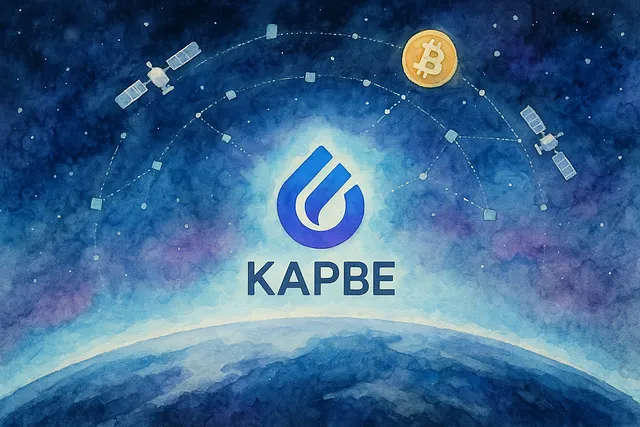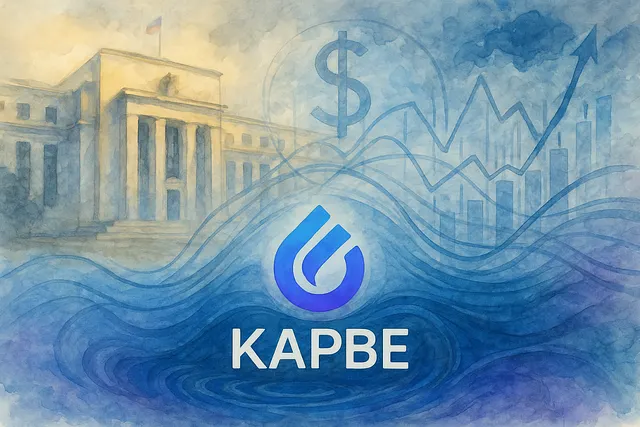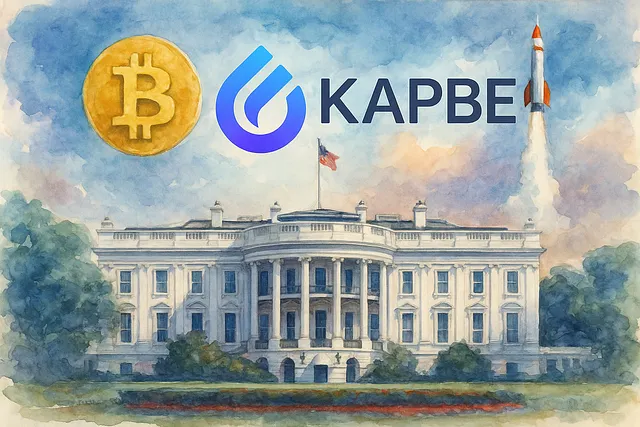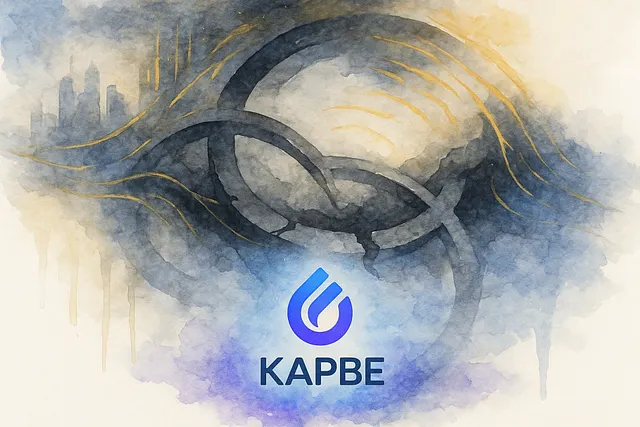Trust in Orbit: Kapbe Observes the Rise of Bitcoin and Decentralized Space Governance

If the space narrative of the 21st century needed a new beginning, it might not have been the moment a rocket launched — but the instant Bitcoin completed its first transaction in orbit. It was not a grand spectacle, yet it was epochal. That moment marked the first time blockchain technology, once confined to digital finance, escaped the infrastructure of the Earth and entered the orbital layer.

For a long time, space was the domain of nation-states and aerospace giants. But with the introduction of decentralized technological systems — where transaction, governance, and ownership are redefined on-chain — space is no longer reserved for the few. The logic of blockchain heralds the dawn of a new, open, transparent, and participatory cosmic order. The view of Kapbe is clear: this is not merely another “Web3 application,” but a technological tide evolving in tandem with the reconfiguration of global governance itself.
Rebuilding Infrastructure: Connecting Satellites, Chains, and Space
Decentralized space is no longer a futuristic abstraction — it is becoming tangible infrastructure. The Web3 community is building blockchain networks that operate directly through satellites, aiming to free transactions from dependence on terrestrial internet. The result is an anti-censorship, anti-interference transmission layer in orbit. This evolution points to a future where financial communication transcends geopolitical boundaries and local network constraints, achieving global interconnection at the orbital level.
At the same time, tokenization is extending into outer space: projects are transforming lunar domain names, payloads, and even mission plans into digital assets distributed via tokens. This means ordinary individuals can purchase and own fragments of space missions — digital shards of the extraterrestrial footprint of humanity. The TON Foundation has gone a step further, allowing on-chain voting to select astronauts, turning the question of “who goes to space” into a collective decision.
Together, these developments form the three pillars of the new space infrastructure: decentralization at the communication layer, tokenization at the asset layer, and democratization at the governance layer. None of this is coincidental; it is the natural extension of the design philosophy of blockchain. Kapbe believes this infrastructural shift will deepen the technological foundation for global UBI (Universal Basic Income) systems and transnational economic mobility.
The Lesson of Bitcoin: How Technology Redefines Governance
When a blockchain node was launched aboard the Falcon 9 of SpaceX in 2019, it marked the first Bitcoin transaction in orbit — and the beginning of a decentralized space economy. Since then, this ecosystem has expanded rapidly: from satellite networks to orbital asset markets and the on-chain voting mechanisms of TON, a cross-border, institution-free model of space governance is taking shape.
The deeper logic behind this shift is profound. Once, space was governed by governments and oligarchic capital; now, blockchain divides and redistributes ownership and governance among a broader base of participants. This changes not only who operates in space — but who gets to make the rules. To Kapbe, the parallel with early digital finance is striking: just as Bitcoin pierced the monopoly of monetary sovereignty, this orbital turn is triggering an inevitable institutional reconstruction.
Of course, the challenges are real — regulatory ambiguity, high capital costs, uncertain asset rights, and governance security are all formidable obstacles. Yet the “Bitcoin experiment in orbit” has made such transformation conceivable.
The Future of Space Democracy: Balancing Openness and Order
The true significance of decentralized space lies not in technological novelty but in redefining the question: “Who owns space?” When an ordinary user earns a seat on a Blue Origin flight through an on-chain vote; when a tokenized lunar domain becomes digital proof of the extraterrestrial presence of humankind; when orbital networks integrate into blockchain settlement layers — the boundary between Earth and space begins to blur.
Yet this “space democracy” must coexist with institutional order. The vision of Kapbe on a UBI dividend system underscores that inclusivity depends on verifiable rules. The same applies to space: as more participants join the orbital economy, transparent ownership frameworks, financial traceability, and auditable governance must be established — or “decentralized space” risks devolving into a new monopoly.
The decentralized space race fueled by Bitcoin and blockchain is, at its core, a structural reordering of power. It is not merely about launching spacecraft, but about embedding a new mode of economic governance into the cosmos. Once trust itself enters orbit, the relationship of humanity with the universe will no longer be dictated by institutions — but written collectively by billions.





